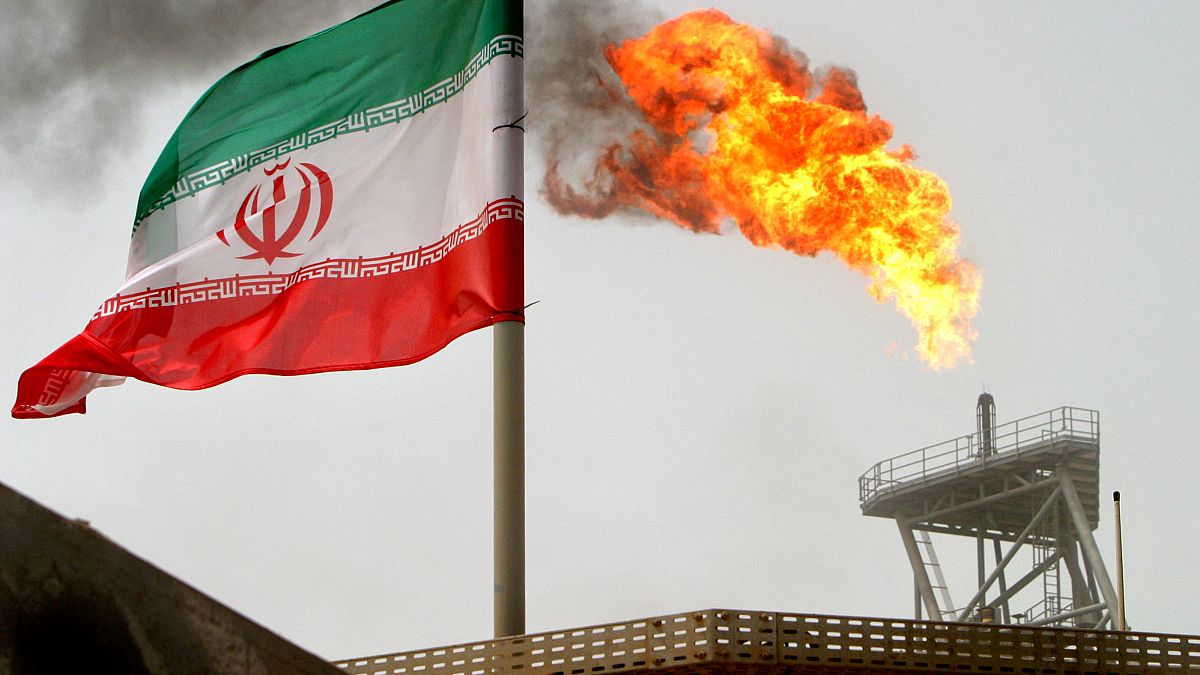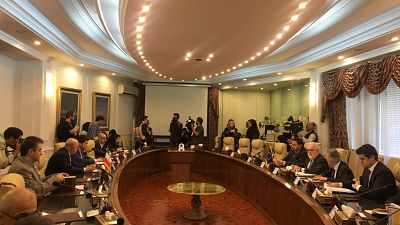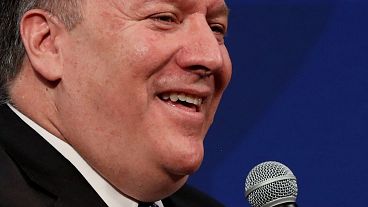The EU has relaunched an old law to protect business in Iran from US sanctions, putting Brussels on a collision course with Washington.
The European Commision says it has launched measures to protect EU business in Iran.
The move is designed to guarantee the interests of EU companies investing in Iran as part of the EU continued committment to the Joint Comprehensive Plan of Action (JCPOA)
The President of the European Commission, Jean-Claude Juncker said: "In Sofia, we saw a show of European unity. As long as the Iranians respect their commitments, the EU will of course stick to the agreement of which it was an architect - an agreement that was unanimously ratified by the United Nations Security Council and which is essential for preserving peace in the region and the world. But the American sanctions will not be without effect. So we have the duty, the Commission and the European Union, to do what we can to protect our European businesses, especially SMEs."
What is the blocking statute?
The “blocking statute” dates from 1996 and was designed to defend companies working in Cuba from the effects of a US trade embargo. By re-introducing it now, the EU is seeking to ban firms respecting US sanctions and make related US court rulings non-effective in the EU.
The measure prevents firms from complying with non-EU sanctions laws and stops foreign court judgments based on these laws from being effective in the EU. It also asks EU member countries to impose sanctions on companies who comply with the US rules.
Why does the EU want to do this?
The EU needs to safeguard Iran’s economic benefits as well as its own, in order to keep Tehran in the 2015 international nuclear deal and prevent its collapse. Iran has warned that a loss of EU business will force it to pull out of the accord, under which it agreed to stop enriching uranium in return for greater trade with the West. The decision follows US President Donald Trump’s decision to withdraw from the treaty– and penalise companies that carry on doing business with Iran.
Brussels also needs to prove that Washington cannot dictate how European businesses operate.
The European Commission said on Friday that it had "launched the formal process to activate the Blocking Statute by updating the list of US sanctions on Iran falling within its scope. Unless it is formally rejected by the European Parliament and EU governments, the measure will come into force within two months, and can be activated sooner if there is strong political support.
“The American sanctions will not be without effect. So we have the duty, the Commission and the European Union, to do what we can to protect our European businesses,” Commission President Jean-Claude Juncker said in a statement.
What action are Europe's businesses taking?
Privately, some European leaders acknowledge the scope for effective action is limited.
However, there are signs that European and multinational businesses – faced with a choice between cutting ties with Iran and jeopardising operations in the world’s biggest economy, the United States – are opting for the former.
Maersk, the world’s biggest shipping container firm, the French oil giant Total and German-based insurance firm Allianz have already announced plans to withdraw from operations in Iran, to avoid new US sanctions.
Where do Europe's leaders stand?
European Council President Donald Tusk said EU leaders had agreed to give the Commission the green light to act whenever European interests were affected.
German Chancellor Angela Merkel said on Thursday that it might be possible to compensate small and medium-sized firms, but not all businesses, from US sanctions. “We cannot and must not create illusions,” she said.
“We’re not going to force French businesses to stay in Iran. The president of the French republic is not the CEO of Total,” said French President Emmanuel Macron, commenting on the decision by the French oil firm to withdraw from an Iranian project.



